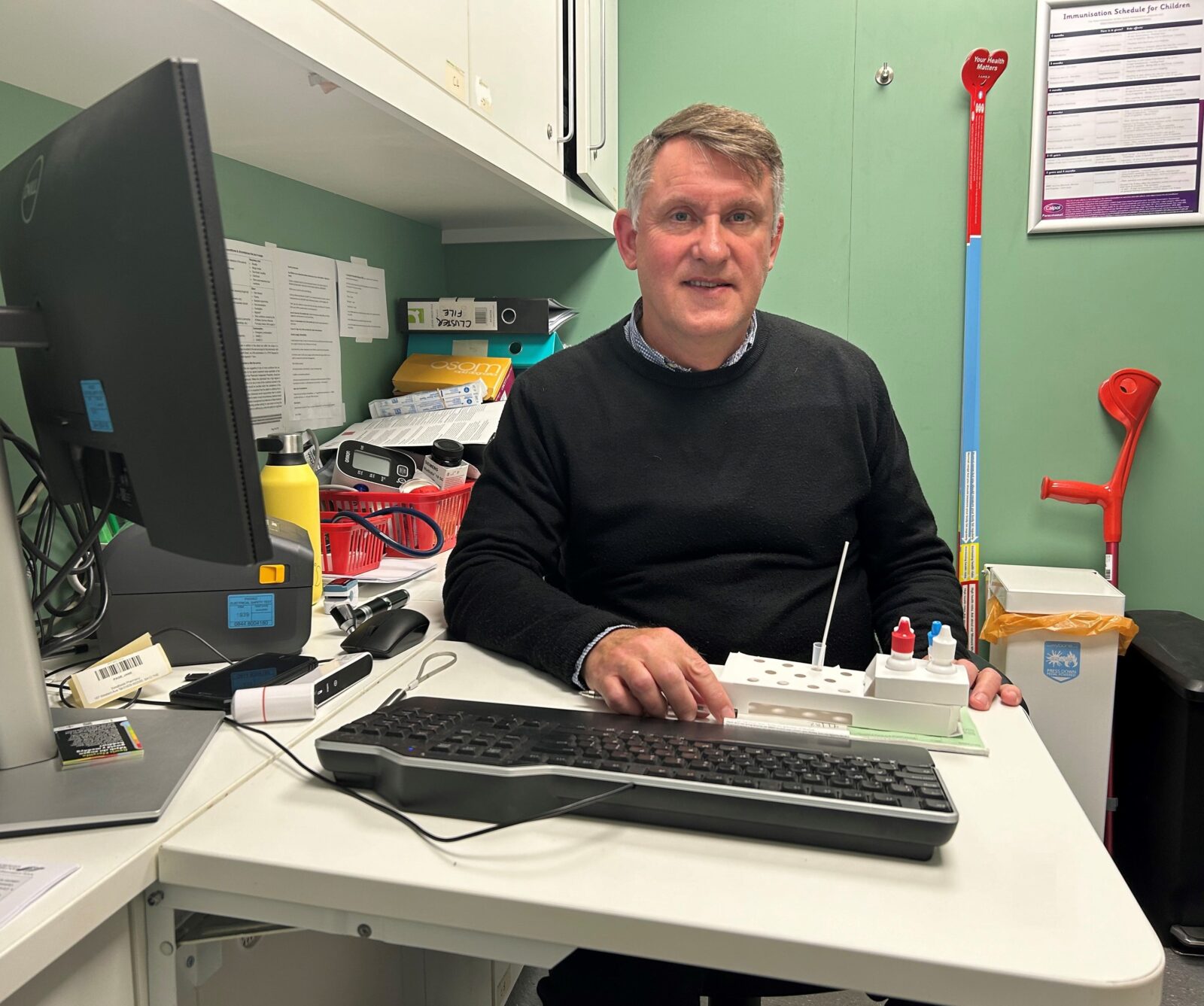A scheme where pharmacists can help determine whether a sore throat needs to be treated or not is helping people in the community.
The sore throat test and treat scheme allows community pharmacists to assess patients over the age of six with a sore throat.
As the weather turns colder, it can be more common to experience a sore throat but antibiotics aren’t always the answer.
During the assessment, the pharmacist will decide whether it is appropriate to swab the patient’s throat.
If the test is required, the result will determine if the sore throat is due to a bacterial infection.
Following the result, the pharmacist may provide treatment to the patient if it is necessary or offer self-care advice.
The scheme is available in a number of community pharmacies across Swansea Bay, with people advised to contact their local pharmacy to check if it is accessible to them.
Kelly Jones-Lewis, Swansea Bay’s Deputy Head of Primary Care, said: “The service allows the pharmacist to assess patients’ symptoms and, where appropriate, swab their throat.
“The pharmacist will ask questions about their medical history, symptoms and any medication they have taken and will complete a clinical assessment to determine if the throat swab test is appropriate.
“If the patient’s answers suggest that their sore throat is likely to be a viral infection, the test may not be necessary.
“If the test is clinically necessary, it will then tell the pharmacist if the infection is likely to be bacterial.”
Once the throat swab test has been carried out, patients only have to wait a few moments to receive the result.
Depending on the result and the patient’s symptoms, treatment may be offered by the pharmacist, without needing to get a prescription from a GP.
Dr Charlotte Jones is a GP partner at Uplands and Mumbles Surgery and the health board’s clinical lead for antimicrobial stewardship, a role which helps educate and support staff to follow evidence-based guidelines for prescribing.
“If they receive a positive result it means the sore throat has most likely been caused by a bacterial infection,” Charlotte said.
“Based on the patient’s symptoms, the pharmacist could supply antibiotics or will advise them to manage it with self-care if it is suitable.
“The pharmacist will discuss that with each patient depending on their symptoms.
“While the service is available to patients, our advice to patients who can self-care at home would be to do so as a sore throat, in most cases, will resolve on its own.”
Sandfields Pharmacy, in Port Talbot, introduced the service last year and community pharmacist Christopher Perrington said it had been very well received.
“It is very popular and we see some people using it fairly regularly,” he said.
“When people get a sore throat they know it’s going to be painful for a few days and it can certainly make life difficult.
“To be able to get prompt, easy access to treatment when needed has been really beneficial for people.
“It can offer a lot of reassurance to people, especially parents of younger children.
“Patients can get a diagnosis, conversation and medication all in the same place, which is very convenient.
“If patients do come in with something we are concerned about we can direct them to the most appropriate alternative provider for further assessment.
“It is very well received. The uptake for the service is really good and it has made a big difference to a lot of people.”
The scheme is available to patients over the age of six but there are some who it is not suitable for.
If your symptoms are persistent and haven’t improved after a week, if you have a weakened immune system or are immunocompromised, have a high temperature that isn’t controlled by paracetamol or ibuprofen, have a medical condition or have had five or more sore throat episodes in the last year, you would be advised to contact your GP practice.








Leave a Reply
View Comments